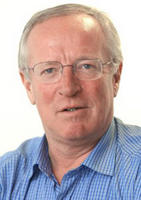Robert Fisk in London
Sarah Meyer, Index Research On 11 October, the reporter Robert Fisk made one of his rare appearances in London. The bookshop, Bookmarks arranged for Mr Fisk to speak to an audience of about 250 in a church hall close to Tottenham Court Road. The event marked the publication of Mr. Fisk’s new book, The Great War of Civilisation, the Conquest of the Middle East, published by Fourth Estate, London.
On 11 October, the reporter Robert Fisk made one of his rare appearances in London. The bookshop, Bookmarks arranged for Mr Fisk to speak to an audience of about 250 in a church hall close to Tottenham Court Road. The event marked the publication of Mr. Fisk’s new book, The Great War of Civilisation, the Conquest of the Middle East, published by Fourth Estate, London.
Robert Fisk is an outstanding journalist. His clarity, courage and in-depth knowledge have, throughout his lifetime, been the bedrock of his principled reporting.
Like Seymour Hersch, Mr. Fisk appears to be a quiet, unassuming middle aged man.
Perhaps this is an advantage for a man who is so very passionate about truth.
Fisk likes reporting because, he said, it “is an opportunity to be the first writer of history, to write the truth… our job is to monitor the centre of power; …to monitor authority, always.”
Fisk spoke of his father, who was a bully, a “very right wing man who liked policemen and capital punishment.” But during WWI, his father refused to execute a man (p. 365ff).
“I have spent my whole life on borders drawn after WWI… All the countries created then are artificial. They don’t work. We are very happy to help. We send them weapons… there is a constant stream of pain, injustice and slaughter.”
Of governments, he said that “you only accept intelligence if it fits in with what you believe.” Fisk believes the US is fighting an “ideological war.”
Of reporting, Fisk said “AP is behind two walls and the NY Times behind a stockade.” He added, “I used to think it was a privilege to be there. Now I wonder if the privilege wasn’t a curse.” He later said, “In American journalism if you criticize, you are un-american.”
“I was on Highway 8 investigating a murder. I saw the largest military brigade I had ever seen. It was a 4 1/2 hour convoy. The ground was bouncing up and down. Iraq is not just about oil. There is a visceral need of the superpower to project its power. I was watching the American empire.”
“Most of Iraq is out of control,” Fisk said. “I have never seen a country so out of control… the Americans must leave and the Americans can’t leave. In due course, there must be negotiation.”
Talking about the deaths of Iraqi civilians, Fisk mused, “I don’t think we CARE about the Iraqis.” The doctors in the hospitals are not ALLOWED to say how many have died,” nor to talk about the “violent deaths in one day.”
What was the best word for those who are struggling against the occupation? “I won’t use the word ‘terrorist’… ‘insurgents’ is the best you can get .” Why were there insurgents? Fisk said, “if you shake and shake and shake, they will hit you; I don’t think there was an original wish to harm us.” I suggest that if you want to read about violence, especially ethnic cleansing, you go to the Holy Scriptures.”
And what was the goal post for the insurgents? The “insurgents primary struggle is to be able to say who will be in power after the Americans leave.” He added, “there will never be a civil war. It’s trivial… I have not met an Iraqi who used the term ‘civil war.’ “
With reference to the reports about Iranians entering the Iraqi border, presently being hyped by the British government, Fisk wryly said, “the Iranians coming over the border is a total myth.”
The audience applauded this fine, fiercely dedicated man, this great reporter.
Robert Fisk is also the author of The Point of No Return: The Strike which Broke the British in Ulster; In Time of War: Ireland, Ulster and the Price of Neutrality 1939 – 45; Pity the Nation: Lebanon at War.
Sarah Meyer is a researcher. She lives in the UK.

This work is licensed under a Creative Commons License.
Labels: robert fisk
 Naomi Klein
Naomi Klein 


<< Home